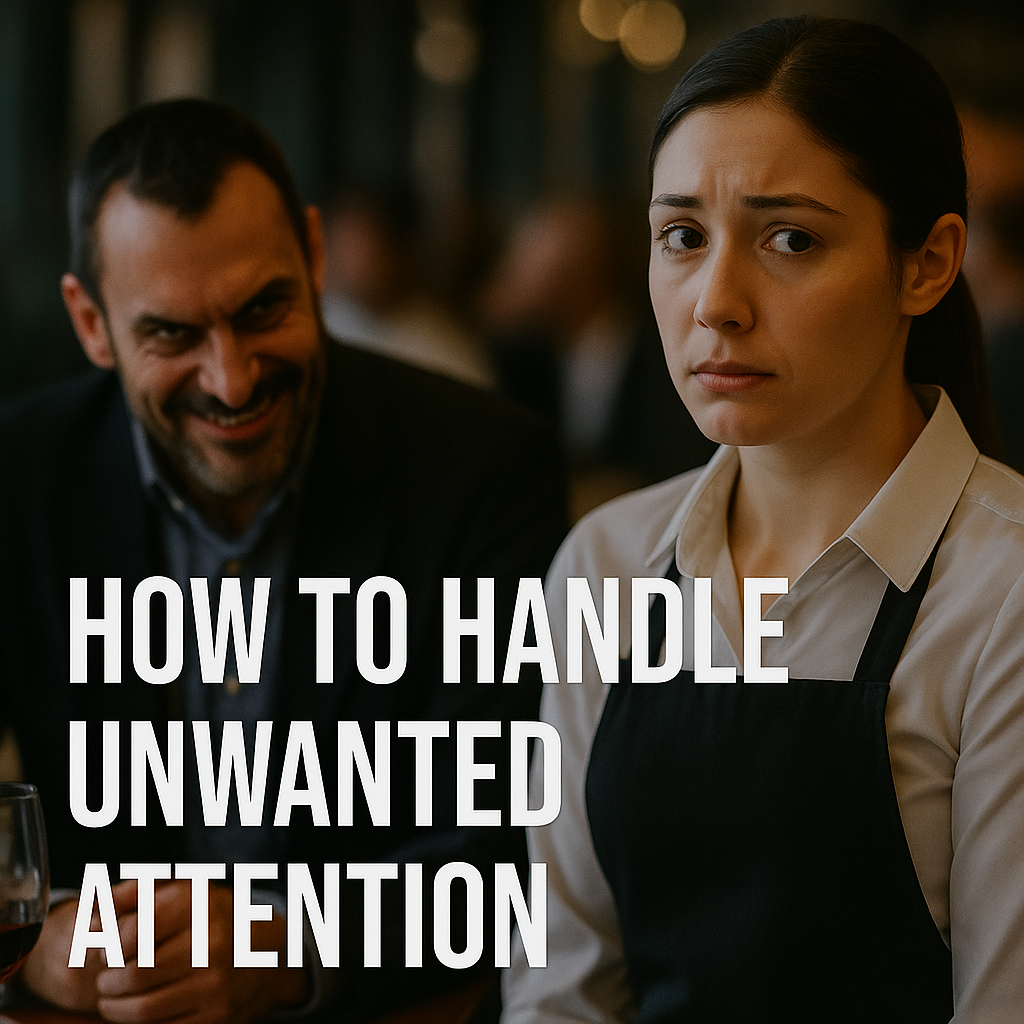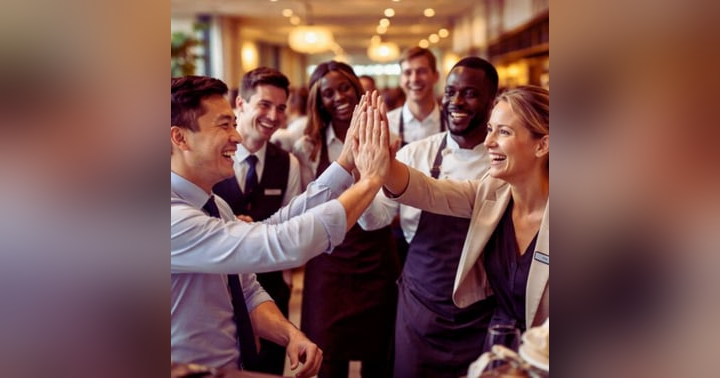How to handle unwanted attention at an event

The hospitality industry prides itself on creating memorable guest experiences. For many front-of-house teams, this means being warm, friendly, and highly professional at all times. But when does attentiveness cross the line into discomfort? In 2025, with greater awareness around personal boundaries, safeguarding, and workplace dignity, it’s more important than ever to prepare hospitality teams for those rare but challenging moments when unwanted attention arises at events.
Setting the Scene: Pressure and Perception
You’re working a gala dinner or VIP drinks reception. You’re upbeat, enthusiastic, and doing what every client hopes for: engaging service with a smile. But a guest lingers a bit too long. Their compliments start feeling personal. Maybe they place a hand on your arm or ask if you’d like to join them for a drink after your shift. It might start subtly, but it quickly veers into a grey area.
Hospitality work often involves navigating fast-paced environments, high guest expectations, and shifting social dynamics.
When alcohol flows freely and boundaries blur, understanding what to do, and when, is key.
Know Where You Stand Legally and Professionally
In 2025, there are clear legal expectations for UK employers around safeguarding and workplace harassment. Every hospitality employer has a duty of care under the Equality Act 2010 and strengthened 2024 Worker Protection (Amendment of Equality Act 2010) Act to protect their staff from harassment by third parties, including guests.
Venues and agencies are expected to:
-
Provide clear safeguarding and harassment training
-
Put practical support systems in place (e.g. buddy systems, reporting processes)
-
Act swiftly when an incident is reported
What You Can Do in the Moment
1. Stay professional, not passive
Just because you’re working doesn't mean you have to tolerate behaviour that crosses the line. Remain polite but firm:
-
A smile is not an invitation
-
You are allowed to disengage and move away
-
You can switch sections with a teammate or ask your supervisor for support
2. Recognise patterns
Some comments might be innocent, but repeated behaviour that makes you feel uncomfortable is not. If someone:
-
Keeps asking for you personally
-
Makes suggestive comments
-
Tries to engage you outside of the work context
...then it’s time to escalate.
3. Don’t wait to report
Speak to your supervisor or team leader discreetly. Don’t worry about being seen as overreacting. In 2025, hospitality employers are expected to create open environments where team members feel safe flagging concerns early.
4. Support your teammates
Harassment is often subtle. Look out for signs that a colleague might be feeling uncomfortable. If you notice someone being cornered or targeted, step in supportively or inform a manager.
What Employers Must Do
Progressive hospitality employers in 2025 aren’t waiting for problems, they’re proactively training their teams and embedding safeguarding into daily operations.
At Talking Hospitality, we see leading operators taking steps like:
-
Adding safeguarding modules to onboarding and training platforms
-
Creating visible staff support points at large-scale events
-
Empowering supervisors to act decisively and back their teams
-
Partnering with organisations like Kellys Cause and Hospitality Action for additional support
Final Thoughts
Unwanted attention is not "part of the job."
In 2025, the industry must make it clear that respect for hospitality professionals isn’t optional.
As a worker, you have the right to feel safe and valued. As an employer, you have a responsibility to act early and decisively.
And as an industry, we all have a part to play in creating event environments where energy, enthusiasm, and professionalism are never compromised by poor guest behaviour.
For training, support and safeguarding resources, visit www.talkinghospitality.com/courses.



